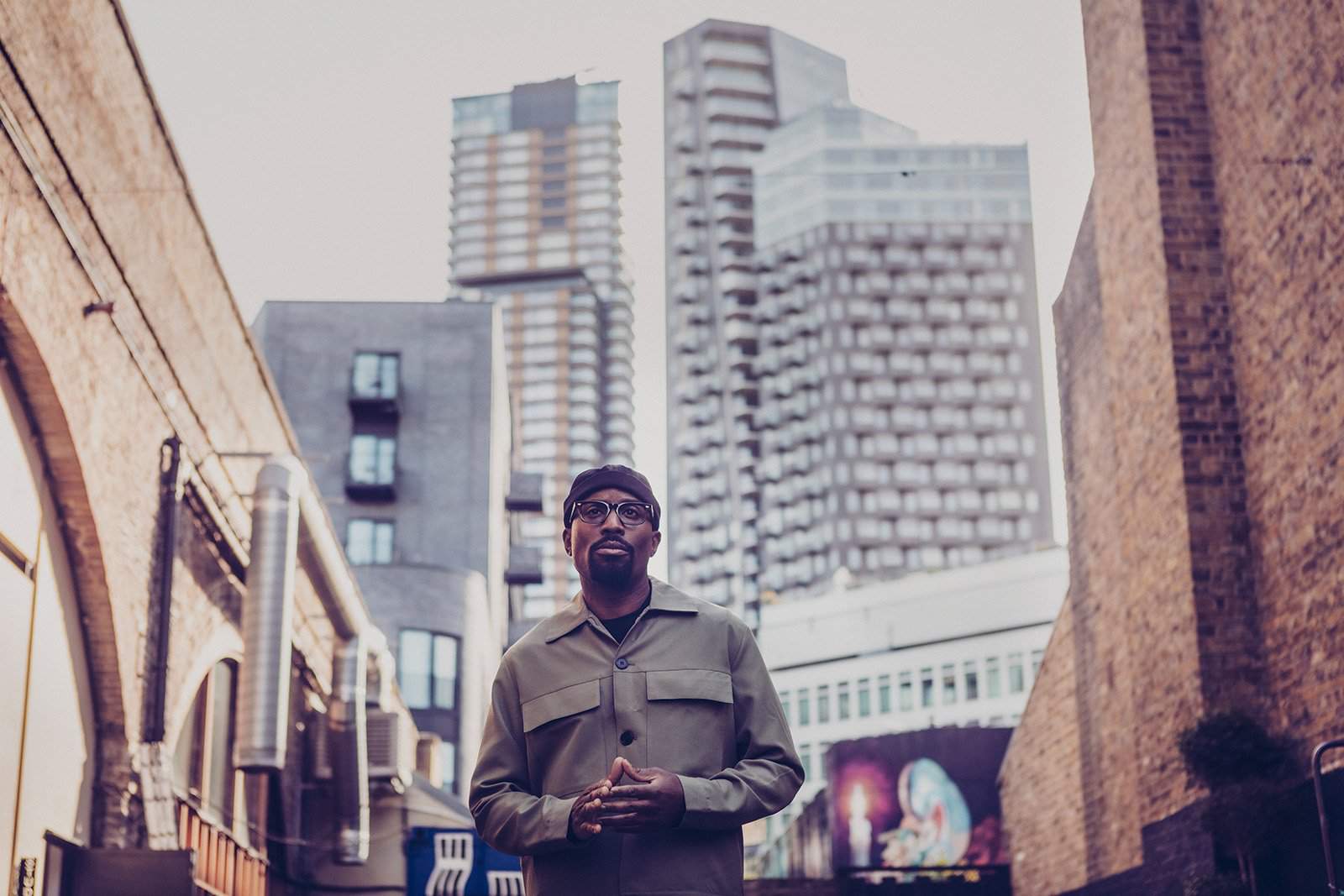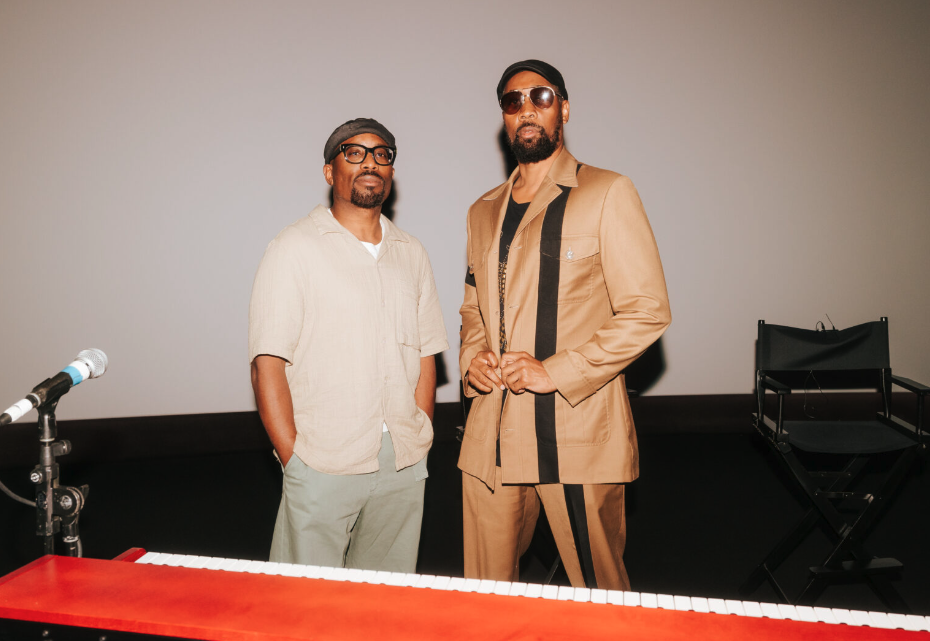
10 questions for Alexis Ffrench
It’s not every day you hear a classical composer name-dropping RZA from the Wu-Tang Clan, but Alexis Ffrench isn’t your typical classical artist. A pianist and composer who fluidly blends classical, soul, and even some elements of hip-hop, Ffrench has carved out his own genre: Classical Soul. With over 1.8 million monthly listeners on Spotify, he’s one of the world’s top 10 most-streamed classical musicians.
This September, Ffrench released his latest album Classical Soul Vol. 1, a tribute to the music that shaped him. The album takes inspiration from an unexpected source: the hip hop mixtape. “When I made Classical Soul Vol. 1, I envisioned it like that: snapshots of soul classics interspersed throughout, like musical interludes that come and go” Ffrench explains. These “snapshots” are nods to his earliest teachers—like Stevie Wonder and Etta James—woven into his own compositions for piano and orchestra.
As cool as he is sophisticated, Alexis shared his remarkably eloquent insights as he answered my 10 questions on road trips, tennis, and his creative process.
1. You have a lot of young listeners on Spotify, Instagram, and TikTok, which is unique for a classical music composer. What do you think appeals to younger people in your music?
I think young people connect with my music because they can see themselves in it. And when I say “see themselves,” I don’t mean in a superficial way, like looking at someone who happens to be playing. It’s about feeling a kinship with the music. In the same way you might listen to a pop song and feel like the lyrics were written just for you, I think music can speak to people no matter the genre.
2.What is your process for composing a piece? Do you start with a melody, a theme, or perhaps an emotion?
My process is quite fluid, there’s no set formula. It’s woven into my everyday life, like walking the dog or spending time with my family. When I finally sit down at the piano, I improvise for days, letting everything I’ve experienced flow into the music. Then, I listen back critically, selecting only the fragments or melodies I believe are most worth the listener’s attention—about 1% of what I’ve played. From there, the process may involve arranging, orchestrating, or sometimes it stays exactly as it is, a pure improvisation.
My studio is silent—literally, I use no external sound and hear everything internally. My musical world is one of extreme, profound silence. And my music emerges from this stillness; it’s very visceral and real, that’s what listeners hear on record.
3. You’ve composed for films. If you could compose the music for any existing film, which would it be?
The Green Mile. It’s a story about this magical man who is wrongfully imprisoned and sentenced to death, yet all he wants to do is help those around him. The people surrounding him are in pain, so he heals them by inhaling their pain and blowing it out. He is this big seven foot tall giant, but he is so generous, loving and kind; it’s the movie I would have loved to have written the music for.
4. If you were creating a playlist for a road trip, which three artists or composers would definitely include?
That’s a tricky one! I’d definitely include Rautavaara’s Angels and Visitations, it’s just beautiful music. I’d also add Prince, and maybe something early like William Byrd.
5. You’ve mentioned hip hop as an influence, and in your series ‘Translate It to Ffrench,’ you transform hip hop tracks into classical arrangements. For many, hip hop and classical seem like unexpected worlds to combine. How do they intersect for you?
I think one of the things I love most about hip hop is the idea of the mixtape. When I created my album Classical Soul Vol. 1, I envisioned it as a kind of 21st-century symphony. It’s an album born from the echoes of soul classics, but framed through timeless melodies and tethered to my classical roots. Throughout the album, I’ve interspersed little interludes that come and go, almost like a mixtape.
That’s part of what I explore in my series Translate It to Ffrench. I take hip hop tracks and reimagine them through a classical lens. I’ve also been in conversation with RZA from Wu-Tang Clan, discussing his classical album.

What fascinates me about hip hop, particularly the mixtape concept, is the way it brings together so many elements: political viewpoints, disruption, music, fashion, sport—all woven into one story. At the heart of this golden braid is the artist, but it’s so much more than just the artist themselves. Hip hop succeeds in creating this intricate, fully completed picture.
If we look back in classical music history, we’ve had composers who were disruptors in their own right, but there aren’t as many today. I believe that’s where classical music can learn from hip hop—not necessarily in terms of production, although there’s incredible innovation happening there, but in the way hip hop offers a panoramic view of the world. I love the currency of hip hop, I love the urgency, and I love the way that people feel they can see themselves in that genre. And I don’t think that’s true necessarily of classical, that’s not necessarily the job of classical, but I think that is compelling: it’s urgent and that’s what I love.
6. Two years ago, you collaborated with Leona Lewis, who rose to fame through The X Factor. If you were auditioning as a singer for a talent show, what song would you choose for your first audition and why?
That’s a great question! No one’s ever asked me that before. If I were auditioning for a talent show, I think I would sing a song by Michael McDonald called I Keep Forgettin. There’s just something about that song. It’s one of those pieces I randomly put on sometimes, and if I had Michael McDonald’s voice, I would sing that at every opportunity!
7. You are an advocate for making classical music more inclusive and accessible. How do you balance staying true to your own art while thinking of the public and making it relatable?
I don’t think the music itself is the problem: it’s the apparatus and constructs around it that create barriers. Many people have had positive experiences with classical music, whether through films, video games, shopping malls, or even sporting events. They come away enriched and often want to hear more. The issue is the artificial constructs and exclusivity that surround classical music, which can be off-putting. Young people, for example, may feel excluded by the terminology, traditions, or cliques associated with classical music.
In reality, when people get to the music quickly – through playlists, radio, or direct experiences – their responses are overwhelmingly positive. But this universal acceptance isn’t always reflected among the classical elite and in the concert halls. On my radio show with Apple Music, for instance, I try to bridge this gap by connecting the DNA of all music back to classical. We play contemporary hits and then pull back to show how they connect to classical pieces from 300 years ago. I improvise live classical pieces based on conversations we have on air, showing that classical music can feel like an emotional extension of the listener.
So, I’m not really about making classical music more accessible, it already is. The challenge is rethinking the way we impose orthodoxy and rigidity around it. Many people are working successfully in this space, but there’s still more to do.
8. I heard you love tennis. What classical music piece would best evoke a thrilling match between Nadal and Federer?
I’d have to go with Ravel’s Bolero, because of the way it starts. If I have to choose one of my own, I’d pick Reborn from my album Evolution. I think it would be an epic match and I think it needs something epic to accompany it.
9. If you could compose for any performer, dead or alive, who would it be?
Oh, I’d say Maria Callas and Marvin Gaye. Can you imagine the two of them in a duet?
10. Have you ever received feedback from a fan that really struck you?
Yes, there was one particular message I received from a gentleman in his later years. He said that a piece I wrote, Bluebird, allowed him to reconnect with the innocence of his boyhood, something he thought he had lost. It was just so beautifully written and it really moved me, my wife as well, who also read it. I’m always touched by people who take the time to listen, first of all, and then take the time to reflect, and then write. It’s so many things they need to do to get to that point, and I’m grateful when they do.
For those eager to see this blend live, Ffrench will be performing in the Netherlands next spring: on March 19, 2025, at TivoliVredenburg and on March 20 at Muziekgebouw Eindhoven.